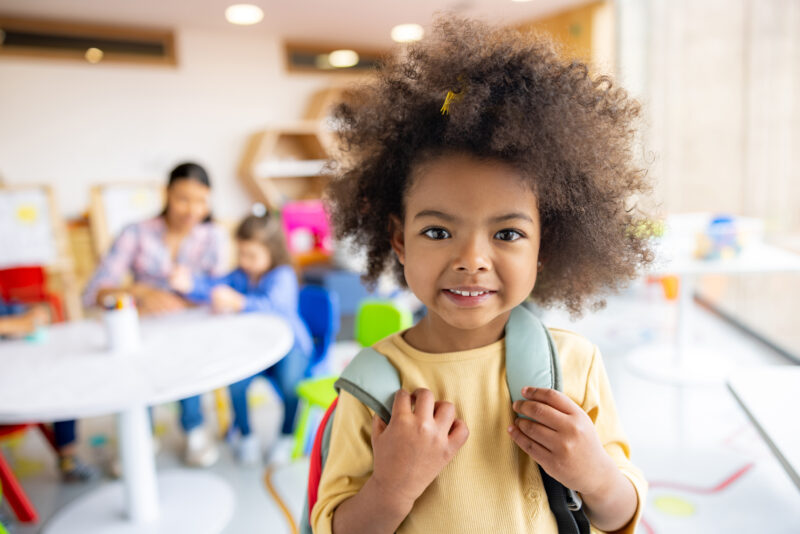Kindergarten readiness involves many aspects of your child’s development, including social, emotional, cognitive, behavioral and motor skills. So getting ready for kindergarten involves practicing all of the skills.
“Parents play a vital role when it comes to kindergarten readiness,” said Dr. Therese Linnon, an Akron Children’s pediatrician. “You are your child’s first and greatest teacher.”

According to a report by the American Academy of Pediatrics, school readiness starts at birth. But regular well checkups with your child’s pediatrician can help ensure your child is reaching developmental milestones at the appropriate time.
Here are some tips to help your child navigate his first year of school:
- Establish a consistent drop off routine: Create a predictable routine for drop-offs, including specific timings and activities. Consistency helps children feel secure and know what to expect each day. It may also help to develop a “saying good-bye” special routine. It could be a hug, a special handshake or a comforting phrase. This ritual provides reassurance and signals that you will return later.
- Practice playing games with your children. Board games help your new kindergartner to practice following rules, taking turns, paying attention and being cooperative with others, which are all great skills for the classroom!
- Encourage independent skills: It is often easier to complete tasks for our children because it is quicker. And sometimes we do things for our kids just to avoid an outburst from making our children do something they would rather us do for them. But your child is going to be expected to do some skills independently now that they are starting kindergarten. Some things to help foster these independence skills at home include opening their food cups, refilling their water bottle, putting on their shoes, buttoning their clothes, wiping their bottom, and washing hands properly and for long enough with soap and water after using the bathroom.
- Encourage your children to talk to new people (especially adults). This skill is difficult even for grown ups but as your child enters kindergarten, they will be expected to speak up and ask questions to new people. You can help your child practice this skill by encouraging them to talk to store clerks, or waitresses when out and about.
- Help your child to learn at least one (and ideally both) parent’s phone numbers, as well as your home address. We made this into a song and game for my daughter in the summer leading into her first school year. Knowing this information is so important and making it fun to learn can also make it easier for them!
- Talk to your child about how things are going. Children often have lots of questions. Spend a lot of time talking with your child about what kindergarten is like. You can also talk about what going to kindergarten was like for you as a way to model how your child can share feelings about kindergarten.
- Establish strong routines at home. Routines help children learn, make them feel safe and in control of their world, and foster their self-confidence and sense of belonging.
- Establish a great bedtime routine. These routines ensure kids get a good night’s sleep and will be ready for a full day of school. Some important parts of a bedtime routine include a consistent bedtime and a predictable order of activities (for example, take a bath, put on pajamas, brush teeth, read favorite story or sing favorite song, get a goodnight hug or kiss).










